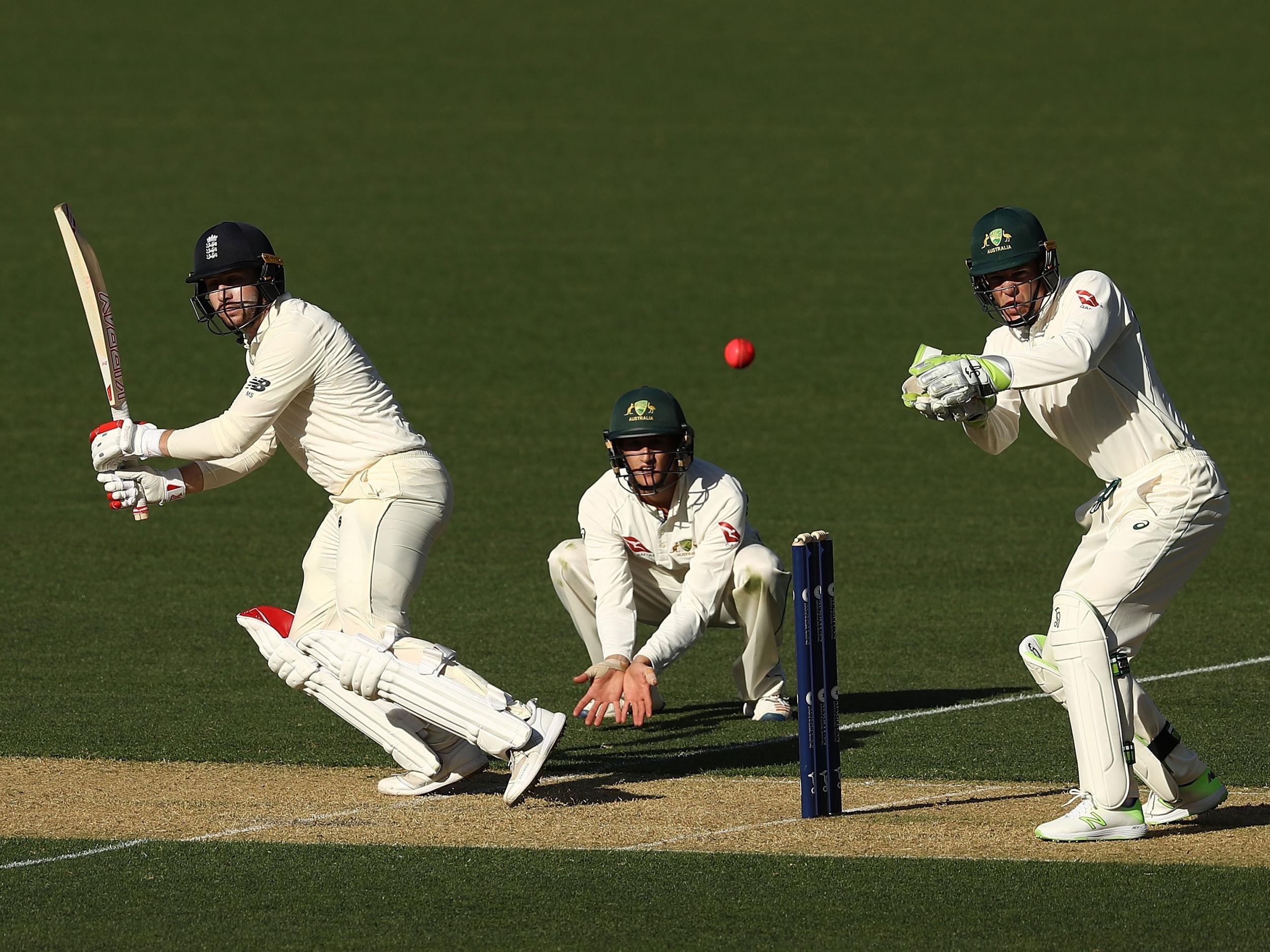Ashes 2017: Mark Stoneman plays down concerns over Alastair Cook's form after second failure in as many innings
The former skipper fell for just 15 in Adelaide today after edging seamer Jackson Coleman behind in the seventh over of the day

Your support helps us to tell the story
From reproductive rights to climate change to Big Tech, The Independent is on the ground when the story is developing. Whether it's investigating the financials of Elon Musk's pro-Trump PAC or producing our latest documentary, 'The A Word', which shines a light on the American women fighting for reproductive rights, we know how important it is to parse out the facts from the messaging.
At such a critical moment in US history, we need reporters on the ground. Your donation allows us to keep sending journalists to speak to both sides of the story.
The Independent is trusted by Americans across the entire political spectrum. And unlike many other quality news outlets, we choose not to lock Americans out of our reporting and analysis with paywalls. We believe quality journalism should be available to everyone, paid for by those who can afford it.
Your support makes all the difference.Mark Stoneman has played down concerns over Alastair Cook’s form after his opening partner failed for the second successive innings on this tour during the opening day of this pink-ball warm-up match against a Cricket Australia XI.
Cook had been dismissed for a second-ball duck in England’s first tour match against a Western Australian XI in Perth last weekend.
And he fell for just 15 in Adelaide today after edging seamer Jackson Coleman behind in the seventh over of the day.
England reached the close on 278 for eight after Stoneman, captain Joe Root and Dawid Malan all scored half-centuries.
But Cook’s early exit and a late collapse that saw England lose three wickets for eight runs to the second new ball under the Adelaide floodlights took the edge of the day.
“The way things are going he’s getting a couple of decent balls, early on,” Stoneman said of Cook. “That’s the nature of opening the batting. We can’t guarantee that we will spend much time together but things feel good. There’s a decent level of chemistry with the batting and how we are in the middle.
“Early in your innings, it’s not a good time to get such a delivery. The longer he can spend in the middle the happier he will be. We have had a decent day, shame about the ending.”
For Stoneman, who started his international career in the three-match series against West Indies at the end of the English summer, this was a second half-century in as many innings after his 86 in Perth last weekend.
But despite that, the Surrey opener was disappointed not to go in and reach his maiden hundred for England.

“The rhythm and timing has been there, and I’m happy with how things are progressing,” he said. “It would have been nice to give it a further lift with a hundred.
“It was pretty disappointing. There was a chance there to get a big score and really get myself into the tour.
“We need to be scoring big hundreds. There are lessons to be learned from today.”
This was the first chance for England’s batsmen to experience the pink Kookaburra ball in a match situation, with their only previous experience of day-night first-class cricket coming with the Dukes ball at home last summer.

The Kookaburra is believed to offer more movement, especially under lights – which might explain why a fairly pedestrian attack picked up those three late wickets.
Stoneman, who was out before the lights came on in the final session, said of the pink Kookaburra: “It’s fine. There was the odd one that seamed early on but not a great deal of movement. It’s a slow wicket and a considerably slow outfield, so 278 is probably worth 320.
“Partnerships are key but when we come to bowling you know that final session is a good time of day to take wickets in bunches. I’m not sure the ball does more than any other period, but for new batsman it’s adjusting to the lights, and a good chance to catch them off guard and get a few in a row.”
As for the paucity of the opposition attack, Stoneman, who has played Grade cricket for nine winters in Australia, said: “It’s not a concern. It’s pretty similar to Grade cricket. There are some strong teams in grade cricket but this was definitely a step up from Perth.”
Join our commenting forum
Join thought-provoking conversations, follow other Independent readers and see their replies
Comments